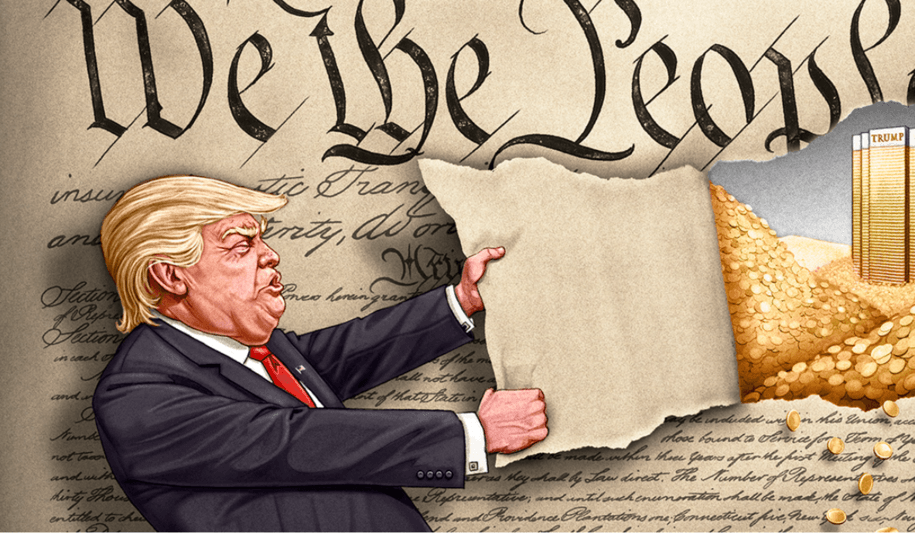In the twentieth century, a narrative was established that distinguished autocratic communism and liberal democracy — with the two systems being described as antithetical both in theory and practice. The distinction between communist fascism and western liberty came to be received wisdom, as did the superiority of western democracy.
When communism was defeated, many declared the unequivocal triumph of the capitalist west over its rival. However, scrutinising the treatment of whistleblowers in the US and USSR reveals that the two systems have far more in common than the official narrative permits, that the US has been much closer to dictatorship since 9/11 than the hagiography of liberal democracy will allow for.
Liberal theory is encoded with bias and dogma. In both the US and USSR, vicious commentary has been passed on dissidence. The two states have been decidedly authoritarian in their approach to dealing with non-conformists. In both states, the military industrial complexes have exerted control over political discourse.
Notorious names — Aaron Swartz, Julian Assange — correspond to notorious cases. While the case specifics encompass a varied range of actions and activities, they are united by concerted efforts to subvert the imperialist regime of the US. They do this through electronic means — through whistle blowing, data dumping, hacking. These are activities which, rendered through the realpolitik filter with which politicians have been conditioned in the corridors of Yale and the pentagon, is tantamount to treason.
Silencing dissent is at the core of imperial strategy.
Treason is an untenable accusation against those who — with the exception of Chelsea Manning and Aaron Swartz — have never been American citizens. Indeed, such charges sullying the names of these renegades seem designed to inculcate fear and obedience to American objectives not just within but beyond domestic spheres of influence.
Wikileaks, the apotheosis of contemporary whistleblowing, is much like the Samizdat underground press, in which dissidents reproduced censored texts through makeshift publications. Both enterprises have been fearlessly dedicated to defending spaces for alternatives to state-approved thought, often at great personal risk. The Samizdat press can be credited for stoking the atmosphere in which reform was eventually possible, and represents the triumph of the mind over repression. Wikileaks mounted the same challenge to the machinery of the war on terror that the Samizdat press did to Soviet apparatchiks. And like the Samizdat press, Wikileaks’ publications had the power to foment revolution, as in the case of Tunisia in the Arab Spring.
Beneath the myth of media freedom in the West lies the truth that news is a cartel that disseminates propaganda on behalf of the empire state, propagating a pro-corporate agenda. In both the US and USSR there has been a state monopoly on acceptable opinion, with criticism of state policy being punishable. Time and again, the ruling classes of both states accuse non-conformists of treason, with dissent unacceptable from the perspective of hegemonic power.
Criminalising critique of state policy remains one of many ways oppressive states wage war on their citizens. These actions were and remain largely divorced from democracy. To drive home just how superficial and empty liberal theory is and how little it knows about the real state of affairs take the fate of Julian Assange, facing 175 years in prison for journalism. America’s decision to officially indict Wikileaks won’t just gag free speech to the same extent as the Soviet Union, it might even represent the advent of globalised dictatorship, indivisible from US power and world order.
The deep state has penetrated mainstream politics.
A large part of America’s strategy for maintaining its power over narrative is to criminalise alternative perspectives. As a result of Wikileaks’ subversive activities, a grand jury has been instituted to investigate and prosecute those involved, and the whole sordid affair constitutes a show trial worthy of commentary from Trotsky. America’s visible punishment of dissent from the pro-war, corporate line proves that the deep state has penetrated mainstream politics, demanding full compliance with the war on terror, to the denigration of the future of the democratic system. The US administration’s punishment and pursuit of Wikileaks is reminiscent of the Gulag.
The same wars fought abroad by imperialist powers like the US are also carried out on its people. The common struggle that unites Americans is against the injustices of a government that is undemocratic and repressive, and that does not respect their rights or their humanity. The country’s politics is dominated by an oligarchy that has paved the way for the introduction of dictatorship, with the government violating the constitution in order to expand its own power.
America’s dystopian political climate points to a democratic decline.
The current trend towards autocracy discredits America’s ostensibly democratic institutions and fuels disillusionment with democracy. Ever since 9/11, the leader of the ‘free world’ has attacked anybody who critiques and exposes the war on terror. For over a decade, Wikileaks’ publications of humanitarian crimes have repeatedly contradicted the official narrative of American virtue.
In the spirit of intellectual honesty we must acknowledge that like the USSR, the US is a centralised political power that suppresses inconvenient truths that contradict its hegemonic narrative. The US has not tolerated the free expression of dissenting views and has managed to set a paradigm in which the state manages a monopoly on acceptable thought.
Megan Sherman is a History and Politics graduate, postgraduate researcher, freelance independent analyst and essayist, campaigner interested in civil liberties.
Image attribution: ProPublica.
Do you want to be informed of DiEM25's actions? Sign up here















